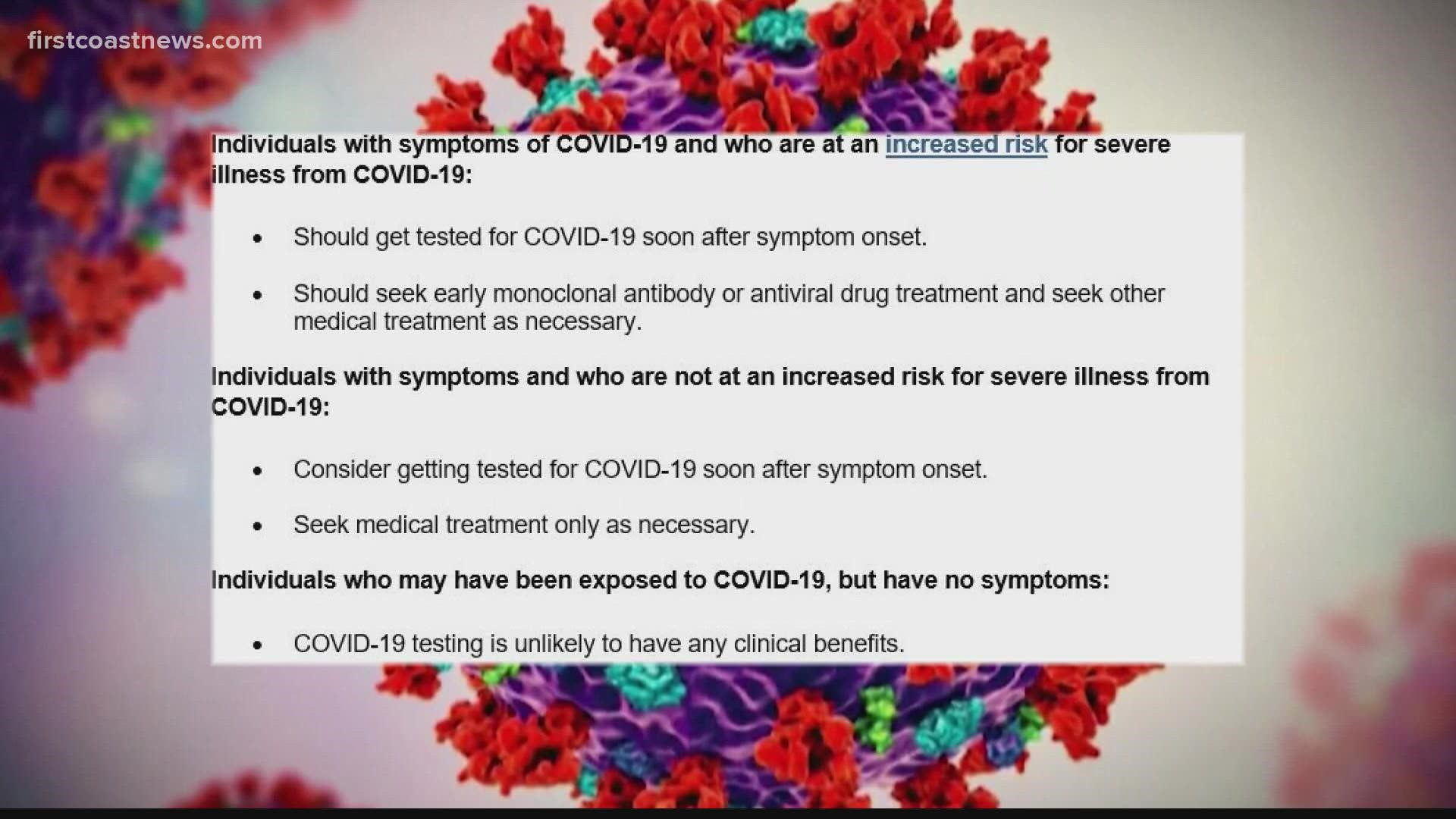JACKSONVILLE, Fla. — Florida Governor Ron DeSantis announced Thursday one million at-home COVID tests will soon be sent across the state to nursing homes and long-term care facilities. During that announcement, DeSantis and Florida's Surgeon General also talked about the new testing guidance the state's Department of Health issued Thursday.
"If you're just young and healthy, you don't need to be running out and getting tested every day," DeSantis said. "Really, testing is supposed to lead to a clinical result or what’s the clinical response if you have a positive test. Well, clearly when you’re talking about long-term care facilities, you’re talking about senior facilities, those are the demographics that are going to take a positive test and then parlay that into treatment," he said.
The new guidance says people who are at an increased risk for severe illness with COVID should get tested when symptoms start. If you're not at an increased risk, but have symptoms, the guidance says "consider getting tested."
If you may have been exposed to COVID, but don't have symptoms, the guidance says testing is "unlikely to have any clinical benefits."
“We’re not restricting access," Florida's Surgeon General Dr. Joseph Ladapo said. "We’re just basically sort of unwinding the thinking that the national leadership has managed to unfortunately infuse many Americans with, and it’s this notion that if you’re healthy you still need to go get tested for something," he said.
"What's happening now is what’s abnormal. So, testing people for a respiratory virus when they have no symptoms on a massive scale is abnormal. What we did before this pandemic is what is normal, which is if you have symptoms, we’ll test you and if you test positive, we’ll treat you," Ladapo said.
Dr. Mohammed Reza, an infectious disease specialist, said he doesn't completely agree with the new guidelines.
“I understand what the guidance is saying, but the testing is the first and the cornerstone of getting behind and any sort of an outbreak, let alone, you know, a very, very contagious virus," Reza said.
"If you don't know what you have, you can't fight it. You can't battle it. So, it's like trying to walk the dark without a flashlight, trying to navigate a plan without a radar," Reza said.
Reza said just because you're asymptomatic doesn't mean you can't spread COVID. He said if you've been exposed, it's a good idea to get tested even if you're asymptomatic, and especially if you're around people who are vulnerable.
“I understand that it's got a lower value, but it does have a value when it's relating to your loved ones who are immune compromised, and those too young to get vaccinated. Because if it is positive, then we can take steps to mitigate decrease rate of transmission to others around us," Reza said.
"That's how these viruses spread: people that are asymptomatic, having no symptoms, spreading it to others, and those others could be a lot more vulnerable," Reza said.
The NIH says on its website, “testing is critical to controlling the spread of SARS-CoV-2, the virus that causes COVID-19. Testing is the only way to be sure you are not passing the virus on to others- even people who are vaccinated can carry the virus while showing few to no symptoms.”
The CDC notes that "testing is very important to reduce the spread of COVID-19."
First Coast News reached out to the governor's office and asked when and what facilities the at-home tests will go to. We are currently waiting to hear back.

